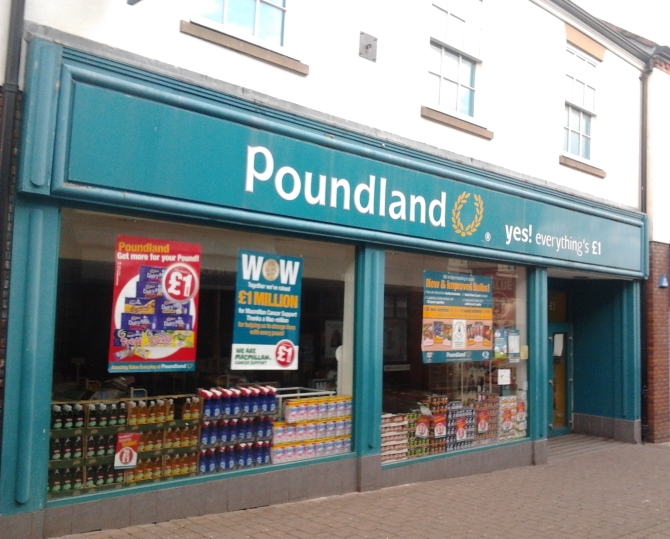Sales and profits in the discount sector of the retail industry have skyrocketed in the past few years, largely due to consumers striving to save during the recession. However, at the other end of the scale, luxury goods retailers have enjoyed an impressive return to form of late as inflation has fallen and allowed households to spend on items denied to them during the period where real wage growth was virtually non-existent.

According to new data released by Barclaycard, discount retailers enjoyed a 21 per cent rise in sales during March when compared to the same period a year earlier. Luxury retailers, meanwhile, saw consumer spending increase by 6 per cent, leading analysts to believe that consumers now choose to buy discount for the majority of their purchases but use the money saved to afford big ticket items of a higher value.
Barclaycard chief executive Valerie Soranno King points out that this trend may have worrying implications for mid-table retailers, as growth at either end of the scale cuts in to both their sales and their market share.
She says; “During the economic downturn we saw a notable shift in spending patterns with many consumers ‘trading down’ and focusing on getting value for money.
“It’s a trend that has continued on into 2014, with discount retailers doing particularly well, and is likely to remain the case until we see meaningful and sustained wage growth.
“Perhaps a little surprisingly, however, we continue to see strong growth in the luxury sector as consumers make sacrifices elsewhere to afford a luxury purchase – this has created a ‘squeezed middle’ of retailers, many of whom are seeing flat or negative growth.”
This trend has been especially prevalent in the highly competitive supermarkets sector, with a recent study by Kantar Worldpanel showing the “big four” losing significant market share to overseas imported rivals such as Lidl and Aldi in the first quarter of the year. However, upmarket brand Waitrose has also enjoyed moderate success, causing some confusion amongst the “squeezed middle” players such as Tesco and Sainsbury’s as to whether dropping prices or stocking more expensive luxury items would be the most profitable way forward.
Fortunately, those in the middle are beginning to fight back in an effective manner, with all four of Britain’s leading brands announcing investment into lowering prices and diversifying their offering in an attempt to appeal to consumers. This has led to one of the most fierce supermarket price wars in several years erupting over the past few weeks, with all keen to post a stronger set of results for the next quarter.
With the timing of Easter skewing results and inflation steadily dropping as the year progresses, chief executives at the big four will no doubt be hoping that the start of the year was simply a stumble in an otherwise strong economic environment. However, with discounters and luxury retailers unwilling to cede the advantages they have gained as consumer behaviour changes, it will be interesting to see the impact this trend has on the retail industry in the long term.
Do you think consumers will continue to frequent both discount and luxury retailers as the economy improves further, putting more pressure on mid-table retailers?
Previous Post
Sanpower purchases Controlling Share in House of Fraser